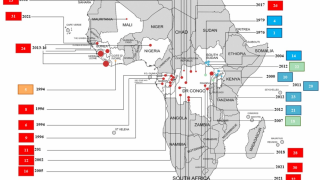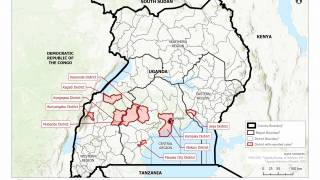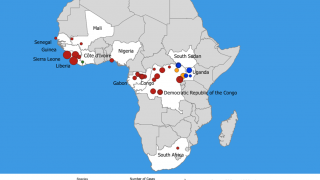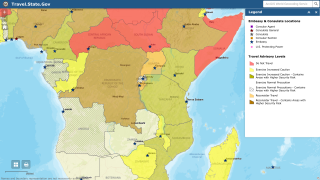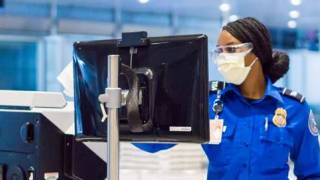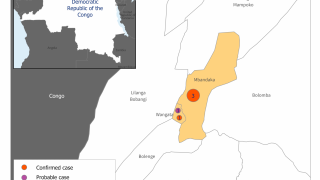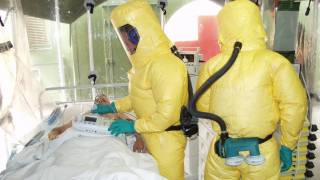Ebola Virus Shedding Reported in 30% of Male Survivors

Amid the ongoing Ebola Zaire virus outbreak in the Democratic Republic of the Congo (DRC), a recent study’s findings indicate there are longer-term health issues to consider.
The PREVAIL III study researchers said, ‘While the clinical manifestations of acute Ebola virus infection are well documented, little is known about long-term sequelae, ability to transmit Ebola or long-term protective immunity in survivors from Ebola virus.’
This New England Journal of Medicine article of the PREVAIL III clinical trial, which was last updated on April 11, 2019, found that Ebola RNA was detected in 30 percent of the semen samples collected from 267 antibody-positive male survivors, and for up to 40 months from time of illness.
“We have documented that shedding of viral RNA in semen is intermittent and persists for a longer period of time than previously recognized,” explained Cavan S. Reilly, Ph.D. in the study’s commentary.
‘The biologic significance of the persistence of Ebola virus RNA in semen remains unclear. And, the presence of viral RNA in semen does not necessarily indicate the presence of an infectious virus.’
“We are continuing to follow study participants for at least 5 years. Additional observations will be reported in forthcoming publications.”
From June 2015 through June 2017, the PREVAIL III study enrolled a total of 966 Ebola antibody-positive survivors of any age and 2,350 antibody-negative controls, 90 percent of whom were followed for 12 months.
The investigators examined both survivors and controls at study entry and every 6 months thereafter. This included medical history assessments, physical examinations, blood collection, routine chemical analyses, and detailed eye examinations conducted by an ophthalmologist.
Recent Ebola virus news:
- Ebola Zaire Vaccine Candidate Scores an A+
- Rwanda Launches Ebola Vaccination Campaign for 7,949 Workers
“The PREVAIL study has yielded novel insight regarding the health issues facing some survivors of Ebola virus disease in Liberia and their close contacts,” said NIAID Director Anthony S. Fauci, M.D.
“We thank our partners in the Liberian government for their collaboration in the successful implementation of this study, and we thank the study volunteers for their selfless participation in this important research.”
Additionally, during the course of the PREVAIL III study, Ebola infection survivors reported having 6 symptoms significantly more often than controls:
- urinary frequency (14.7% vs. 3.4%)
- headache (47.6% vs. 35.6%)
- fatigue (18.4% vs. 6.3%)
- muscle pain (23.1% vs. 10.1%)
- memory loss (29.2% vs. 4.8%)
- joint pain (47.5% vs. 17.5%)
This study is supported by the National Institute of Allergy and Infectious Diseases and the National Eye Institute. No potential conflict of interest relevant to this article was reported.
Our Trust Standards: Medical Advisory Committee


